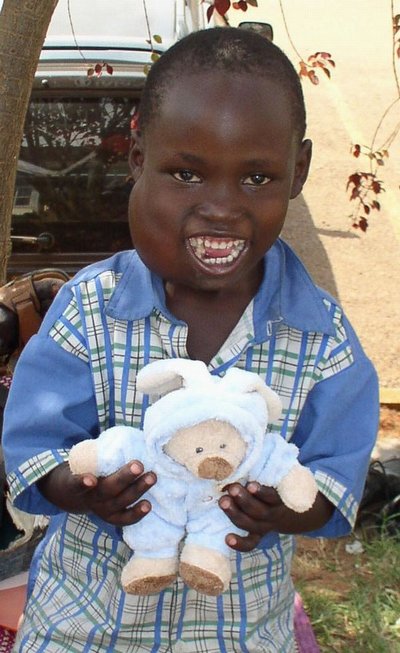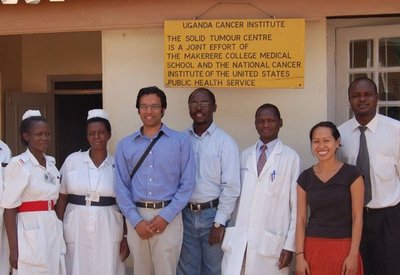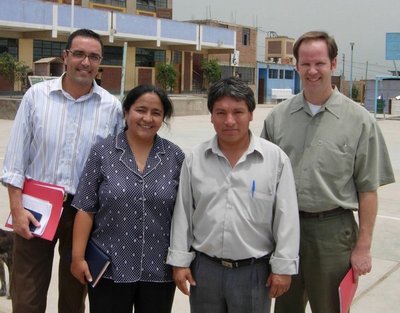July 24, 2008
Center for AIDS Research receives $16.5 million
===========================================================
One of the first AIDS research centers in the country has been awarded $16.5 million for the next five years to continue its trailblazing work in providing a cost-effective infrastructure for HIV/AIDS researchers.
The National Institutes of Health award announced in June provides funding through May 2013, marking 25 years of funding for the Center for AIDS Research (CFAR) at the UW/Fred Hutchinson Cancer Research Center.
“This funding will allow us to continue the important work of supporting junior investigators and supporting new avenues of collaboration and research,” said Dr. King Holmes, the principal investigator and the William H. Foege endowed chair of the Department of Global Health.
The center, established in 1988 when the AIDS epidemic was peaking in the United States, is part of a national network of 20 AIDS research centers whose mission is to provide core services to HIV investigators and to unite distinct research groups into a synergistic, collaborative system. All these centers are helping to battle an epidemic with more than 6,800 new infections and over 5,700 deaths each day (UNAIDS Nov. 2007).
More than 300 UW and affiliated faculty and research scientists participate in the CFAR through 10 research cores and three scientific programs. The center is a consortium of Seattle-based member institutions, including the Seattle Biomedical Research Institute and Children’s Hospital and Regional Medical Center, and includes HIV/ AIDS and STD specialists from more than 20 disciplines.
The CFAR is now based in the Department of Global Health because a large proportion of CFAR’s pilot research takes place in developing countries where HIV rates are the highest. Dr. Grace John-Stewart, associate professor of medicine in the Division of Allergy and Infectious Diseases, leads the CFAR international activities with projects in Kenya, Peru, Mozambique and other countries.
With new funding, CFAR will launch its Scientific Program on AIDS-Associated Infections and Malignancies (AAIMS) to bring more resources to the investigation of these conditions.
“Despite the increasingly widespread use of antiretrovirals, AIDS-associated infections and malignancies continue to be devastating problems in resource-poor settings,” said Dr. Corey Casper, director of the AAIMS program. Casper is an assistant professor of medicine in the Division of Allergy and Infectious Diseases.
He said this issue is compounded by the fact that there have been relatively few advances in the treatment of AIDS-associated infections and malignancies since 1996, when their incidence in the United States and Europe dropped dramatically to levels so low that drug development was discouraged and clinical trials would have been difficult to undertake. However, Casper said recent work shows that cancer among people with HIV is showing a 2- to 3,000-fold increase in malignancies ranging from lung cancer to Kaposi sarcoma.
The Center for AIDS Research AAIMS Scientific Program will bring together a community of more than 30 Seattle faculty working in basic, translational and clinical sciences to encourage the free and rapid exchange of scientific knowledge, foster research collaboration and establish new directions for AAIMS research.
It also will serve to link researchers in AAIMS from the other national CFARs and international research groups through symposia, research roundtables and collaborative grant writing.
CFAR is also hugely instrumental in supporting junior investigators. So far, CFAR has made 37 major grants to junior investigators, of whom 89 percent have received subsequent funding for HIV/AIDS research, said Susan Mello, the administrative director for the center.
“Without CFAR, many junior investigators would choose other fields because they wouldn’t be able to conduct pilot research or subsequently become faculty members,” said Dr. Ann Collier, director of the program that funds new investigators. Collier is a professor of medicine in the Division of Allegery and Infectious Diseases.
Among other projects, CFAR is emphasizing an expansion of its work into mental health and substance use, connecting with various disciplines on campus. It is also working on one of the first studies to translate scientific understanding of the importance of concurrent sexual partnerships in causing HIV transmission in King County. UW researchers and community funders have raised additional NIH funds to do this work. CFAR also supports the work of a Community Action Board by holding community events and sharing information with community groups.
“CFAR has been a tremendous resource for our investigators at the Fred Hutchinson Cancer Research Center — from mathematical modeling, biostatistical consulting, review of grant ideas, immunology and flow cytometry, to synergy with the HIV Vaccine Trials Network and other programs,” said Dr. Larry Corey, co-director of UW/FHCRC CFAR, director of the FHCRC program in infectious diseases and principal investigator of the HIV Vaccine Trials Network. Corey is a professor of medicine and laboratory medicine.
To learn more about the Center for AIDS Research, go to http://depts.washington.edu/cfas/cfar/ or contact Susan Mello at 206-744-2238 or spmello@u.washington.edu.



